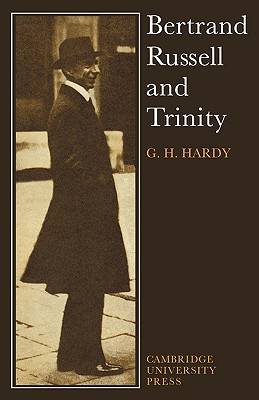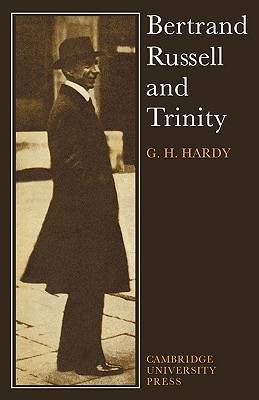
Door een staking bij bpost kan je online bestelling op dit moment iets langer onderweg zijn dan voorzien. Dringend iets nodig? Onze winkels ontvangen jou met open armen!
- Afhalen na 1 uur in een winkel met voorraad
- Gratis thuislevering in België vanaf € 30
- Ruim aanbod met 7 miljoen producten
Door een staking bij bpost kan je online bestelling op dit moment iets langer onderweg zijn dan voorzien. Dringend iets nodig? Onze winkels ontvangen jou met open armen!
- Afhalen na 1 uur in een winkel met voorraad
- Gratis thuislevering in België vanaf € 30
- Ruim aanbod met 7 miljoen producten
Zoeken
Omschrijving
In 1916 Bertrand Russell was prosecuted and fined for publishing (in defence of a conscientious objector) 'statements likely to prejudice the recruiting and discipline of His Majesty's forces.' He was almost immediately afterwards dismissed from his Lectureship at Trinity College, Cambridge, by the College Council. This expulsion provoked a storm of protest and the true facts of the case became obscured by misconceptions, prejudices and uninformed gossip, to the discredit of the College. In 1942, therefore G. H. Hardy the mathematician printed for private circulation to another generation of Fellows at Trinity a full account of the incident in an attempt to explain what really happened. This is now made public. Besides provoking an authoritative record of a celebrated but misinterpreted episode in Russell's eventful academic career, this document contains interesting evidence about attitudes to pacifism in the First World War and in particular about the sympathies of such distinguished colleagues and contemporaries of Russell as Cornford, Housman, McTaggart and Whitehead.
Specificaties
Betrokkenen
- Auteur(s):
- Uitgeverij:
Inhoud
- Aantal bladzijden:
- 76
- Taal:
- Engels
Eigenschappen
- Productcode (EAN):
- 9780521113922
- Verschijningsdatum:
- 18/06/2009
- Uitvoering:
- Paperback
- Formaat:
- Trade paperback (VS)
- Afmetingen:
- 140 mm x 216 mm
- Gewicht:
- 108 g

Alleen bij Standaard Boekhandel
+ 97 punten op je klantenkaart van Standaard Boekhandel
Beoordelingen
We publiceren alleen reviews die voldoen aan de voorwaarden voor reviews. Bekijk onze voorwaarden voor reviews.











